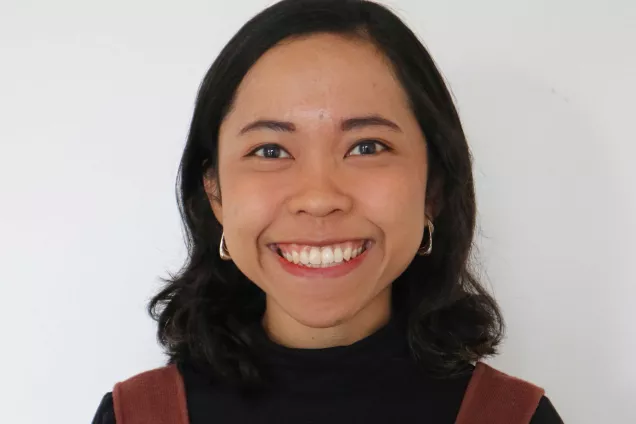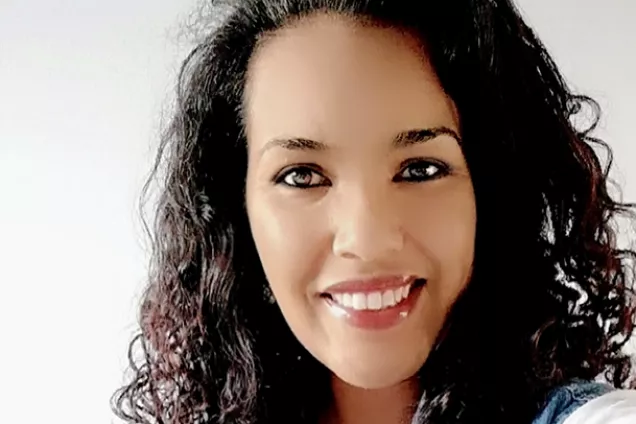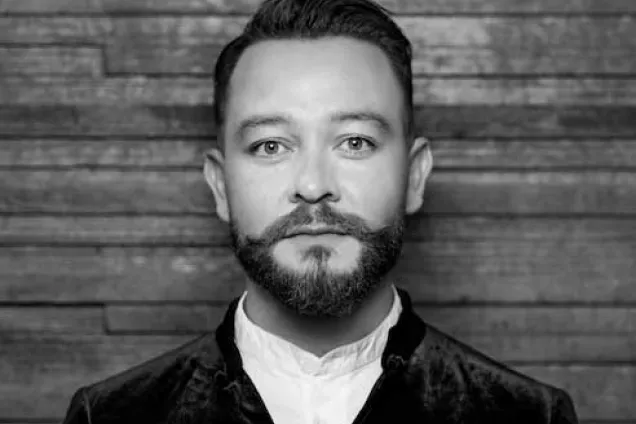What Christine says about the Master's in Service Management, Culture and Creativity Management
Christine from Kenya
About the programme and the teaching style
How did you find out about Lund University/this programme?
"In the 1990s, I came here to Sweden with my aunt who's a diplomat and while we were here, I studied a bit of Swedish. The goal was for me to try to get into school here; unfortunately at the time, Swedish universities were not being offered in English at the Bachelor’s level, so I couldn't join at the time.
Since I had a bunch of family in the United States, I decided to go there to do my Bachelor's degree. And while I was looking at the programmes, the one school that caught my attention was Lund! They had a perfect programme in development, but I could not do it yet because you needed a Bachelor's degree first. So I promised myself I will find my way back to Lund! But life got in the way and by the time I was finishing, I had 20 years of experience in non-governmental development work and a Bachelor's degree in Computers and Information Systems.
Then I thought of what I was going to do with the rest of my life and I thought that if I would struggle to find work, let it be in the space that I actually enjoy. This is when I found the Cultural and Creativity programme in Lund and started looking more deeply into it."
Why did you choose this programme?
"I wanted to go for this programme which arguably can be seen as more theoretically focused because I thought there was more credibility in the rigor the programme offers. As someone who is coming from a different background, I think it was important enough for me that I needed to understand the basics in terms of the way people think in Culture and Creativity. Aside from the management aspect and the know-how of working in organisations in modern times, it was important for me to understand the fundamentals and the foundations for how Culture and Creativity is managed.
It also has a social sciences focus which also makes you reflect on how does your work as an individual within your organization impacts the rest of society. Especially coming from an African context, that was also extremely important for me to experience."
What do you think about your programme so far? Does/did it live up to your expectations?
"It does! When I started, I told myself: “Be intentional. What is it that you are going there to do?”, and I expected to get tools to then practice it in my career. And reflecting on the past year of classes, I can say that I do have those tools now! I can say that I am now having conversations with professionals on LinkedIn which I would have felt not confident enough to have one year ago. When interacting with them, I understand exactly the context and can even give some theoretical grounding and they would thank me with “Oh Christine, I would not have known this if you hadn't been the one to tell me!”. And that to me is a huge compliment coming from a practitioner and also a testament to the training I'm receiving at Lund."
What is the best thing about your programme?
"In the previous course where we were doing service development, we took the class inside a jeweller who designs jewellery in a really nice boutique store in Lund. We went there early in the morning and we got to sit in surrounded by those beautifully designed gold, silver precious gems and jewellery. Now we're sitting there and the owner is the one leading the class because she just happens to have a PhD from Lund. To me that was one of the best moments of taking this course: she is not a practitioner, this is a theoretical course but I'm sitting in a successful jewellery business of a lady who is third generation jewellery maker from Germany, got a PhD from my university in Jewellery Making and Design, and is now showing us not just what she has studied, the literature and the theory behind it, but the practical terms keeping the store running."
Have you been able to gain any practical experience during your studies so far?
"Another example of this was also in Service Development. There is an area south of Helsingborg, which is where our campus is situated, where we were working on a project for the area called Gåsebäck – it was about trying to revitalise the area through arts and culture. So they took a bunch of us to one of the buildings there and gave us a space to sit and study. We were given the assignment and asked to approach it as consultants. We then did a presentation to the municipality of Helsingborg. We came up with our own project, a problem statement and our own solution; we pitched it to actual members of the municipality, and this shows the wonderful multifaceted nature of the programme.
We have also been able to talk to multidisciplinary researchers who came to talk to us from the UK or Australia within culture and creativity management."
What do you think of the teaching style?
"I am currently planning for my thesis and we are required to do the thesis in pairs. Of course, everyone wants to do the thesis on their own because then you do not have to compromise on what you want to study – I confess, I have also felt the same way! But I quickly discarded that thought because this is going to take a lot of work and research, so it will be beneficial to have a second person there to help you and off whom you can bounce ideas.
This is just to show how much the teaching style in Lund is very centred around teamwork: many hands make light work, but it is also because you never know who you're going to be working with in real life after your studies. So you have to be open, flexible, accommodating and compromising with multiple people and multiple personalities. People who from the face of it you might not be able to get along with, but because you have to do this project, you find ways to compromise and are able to work together! So it's a really great example of how you're going to work in real life. You are not going to meet with people you agree with 100%.
The professors are also very engaging and always willing to answer your questions. They want you to ask questions outside of the box and think practically in as much as in terms of the theory. But they also want you to think about the work that you do in relation to your fellow students, how can you work together to achieve a common goal."
How “international” is your programme? (in terms of nationalities represented)
"In the Department of Service Management, I think we are about 100 people this year. I do not have the exact number, but we are actually a majority of international students, compared to Swedish students, based on what I have seen. I have worked with folks from Jordan, the Middle East, Africa. I'm one of two Kenyans in the whole department and one of three East Africans. We also have people from Asia: China, Sri Lanka, different parts of the Pacific and then the United States and other parts of Europe."
Thoughts on being an international student at Lund and culture shocks
What it is to be an international student at Lund University?
"In terms of my personal experiences as an international student, it has been a challenge to understand and get into the system as quickly as possible but once you are in, things are a lot easier for you. Then all you do is focus on the schoolwork, which to me has been a real joy and the best part of this whole experience. But just to be fair, there are things that you need to do to go get into this system. Even paying for things in shops, they do very little cash. These are culture shocks that you can when you get in but once you are past that, it is all about school and school is really great!"
What surprised you the most about Sweden/Swedes?
"Even though I have been to Sweden before, a big shock was in terms of how well-organised Sweden is. I would say that the government of Sweden is a bit more organised than the private sector and that might be a shock if you're coming from a different context. The weather is what my colleagues complain about a lot more in terms of culture shock. For me, because I came from Sweden previously and I have lived on the East coast of the United States for many years, it is not such a problem for me."
Future plans and career preparation
What are you planning to do after your studies?
"When I left Kenya, I registered a consultancy because I wanted to do advisory work there. I previously worked in culture and creativity and I saw that there were a lot of capacity gaps. So I thought they needed technical assistance to create organisations for culture and creativity; people don't think that these are organisations, but rather entertainment businesses that are not doing things seriously. The only thing was I was unsure if I wanted to enter consultancy from a culture and diplomacy or management or policy angle. Now that I am in this programme, I want to focus on Strategic Management because I think that there is an alignment between what the gap is, at least in the African continent, and what I have been able to learn here."
To what extent did your degree programme prepare you for a career in your field?
"I was talking to the Master coordinator and she asked the question of whether I am interested in staying in Sweden. For now, I am trying to navigate the ways that I could be of assistance to my continent and at the same time also bring value to folks here in Europe and specifically in Sweden.
There are also many ways in which there could be partnerships and collaborations with culture and creativity practitioners on the continent and also in Sweden. I have found the tools that I needed and I have figured out what it is that I want to do in consultancy. Now is an opportunity for me to explore how my new experience in Sweden is going to work with where I come from and my old experiences."

Meet our student ambassador Julaina
Read her testimonial and chat with her via Unibuddy.

"I could finally get everything I love in one programme"
Ruth from Colombia

"The teachers were very knowledgeable and interactive"
Albert from the USA and Colombia

"The Master’s goes beyond the idea of selling a product"
Fanny from Mexico
